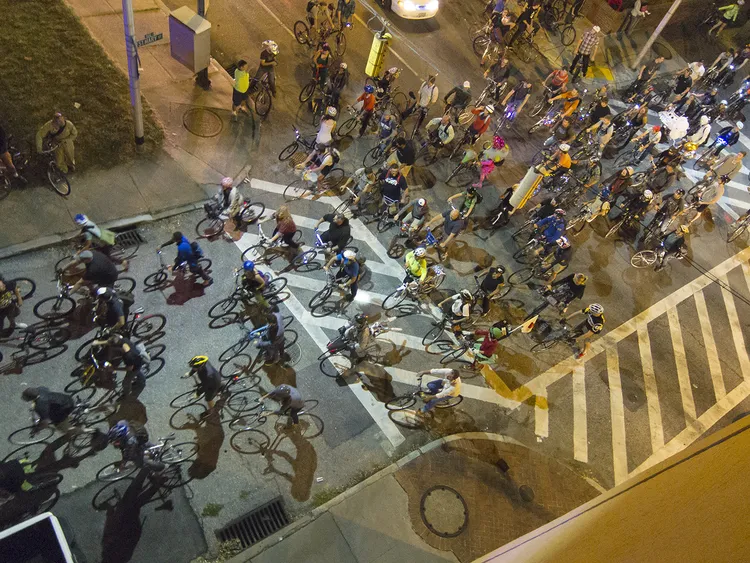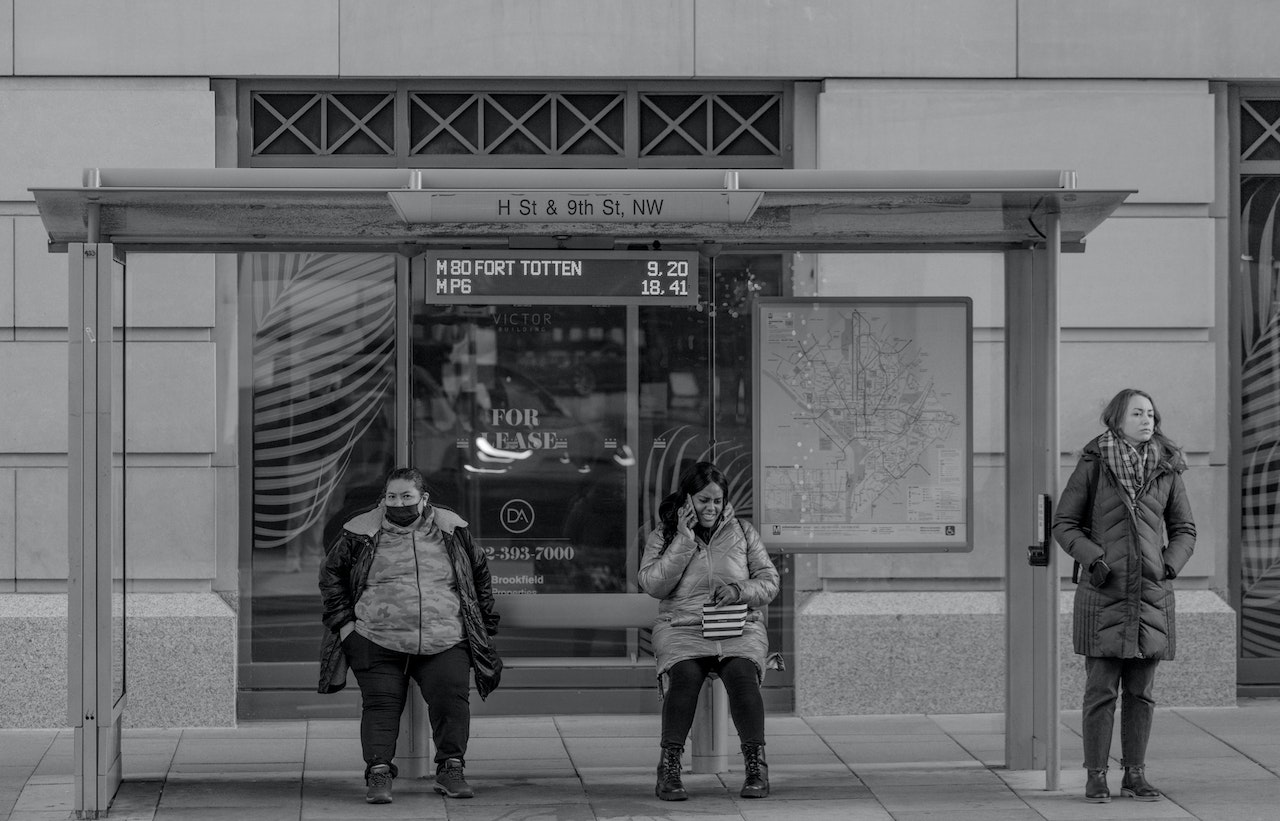Editor’s note: A version of this article originally appeared on Substack and is republished with permission.
Your political “base” is the people who will pretty much always agree with you. For an individual campaigning for office, their base is their die-hard supporters. For issues-based campaigners – like transit or bike advocates – their base is the people who will support pretty much anything that helps advance that issue. The base supports the issue, but they might not know “you” — the individual or your group — at all.
A crucial role in bulking up your political strength is to bridge that gap and connect with the base. Make “the base” into “your base.”

Having done a lot of that base-building work — especially for my seven years working in the solar industry — there are a few things that it’s important to understand when it comes to issues-based campaigns:
- “The base” doesn’t organize itself at the speed and size you need it to.
- To get the base engaged, you have got to directly talk with strangers. It can be in person, masked, over the phone, email, video chat, or text – whichever medium you choose, use it to make connections with the strangers who agree with you on your shared goal.
- These strangers probably have no idea who your group is, let alone who you are
- At least at first, it’s important to connect with the base on their values rather than your solution. A bus rider might not understand all the various reasons why their bus is late, but they deeply know how their bus being late hurts them. Start by connecting with them about their pain — and then introduce how the solution you’re pushing will help them.
- Reaching the right person at the wrong time means you’ll likely get ignored or told no. Try again with better timing.
- Make it extremely easy for this stranger to take the action you want them to take.
It might sound easy, and maybe even too obvious to be worth pointing out, but consider this: when was the last time you were riding transit and someone asked you to sign a petition telling elected officials to provide more funding to transit?
Have you crossed a dangerous intersection and been greeted by a safe streets organizer with information on how to call your elected representatives and demand that that intersection be fixed?
While the idea is pretty straightforward and the conversations themselves are easy, it takes a lot of effort to ramp up engagement with the base. And it can be tempting to think that such work isn’t needed.
If you come from the world of professional transportation engineers, it can be tempting to assume that logic will win on its own merits and grassroots political organizing isn’t needed to win. After all, if we can make roads safer, increase efficiency of people moving through corridors with more transit, and build safer bike infrastructure, won’t people celebrate? Why would we need to campaign for something as reasonable as safer streets?
Or, from a regular person’s point of view, you might assume that transit agencies and traffic safety engineers have got this covered, and they don’t need your grassroots support. After all, aren’t all transit agencies looking to significantly expand their services? Aren’t their requests well-received by politicians?
Of course, if that were the case, we wouldn’t have dangerous streets where tens of thousands of people die annually, or a fragile car-dependent transportation system, or starving transit agencies. If we want to win a better world, we need to get supporters directly engaged in advocating for it.
Fortunately, one part of engaging the base is extremely easy: you know where the base is, when they are there, and when they are most open to hearing from you about solutions. That is a massive advantage bike, transit and street safety organizers have over almost any other type of organizer. We don’t have to knock on strangers’ doors and hope they care about bikes or transit and are up for chatting about it at that moment.
We know who cares about our issue, where they are when they care about it, and when they are most open to hearing it. It is bus riders while they are waiting at the bus stop. It is bike riders while they are riding their bikes on dangerous streets. It is people who just crossed dangerous intersections.
Yes, they are strangers, but they are strangers who are going to be so happy to hear from you because you have a real solution to a very real pain they are experiencing at that moment. Make your ask of them a simple one to understand, and you are going to have a shockingly easy time getting them engaged. Union organizers wish they had it this easy. (if you haven’t read Jane McAlevey’s book on the work it took to organize nurses in Nevada yet, I strongly recommend it.)
Talking with strangers might feel intimidating or even a bit scary. The unknown, the unpredictable, and the possibility of rejection are all very normal things to be afraid of. But you can learn how to minimize the variables, increase your odds of success, and learn how to be more effective at talking about political matters with strangers.
It takes work to bridge that gap and continuously engage with the base, but the payoff is massive. Go talk to strangers!
And here’s the good news for introverts: if the title of this piece put a knot in the pit of your stomach, remember that YOU don’t have to be the person who talks with strangers. You can help make the plans, the flyers, the petition page, the technical analysis, or all sorts of other things that are needed in every single campaign effort and don’t involve talking with strangers. It takes all sorts of people to win the changes we need!
Editor’s note: A version of this article originally appeared on Carter Lavin’s Substack and is republished with permission.
Carter Lavin is a climate activist in Oakland, California who helps organizations and individuals build political power, hone strategy, and win campaigns on the local, regional, and state level. Learn more about him at his website, or schedule a time to speak with him at carter@carterlavin.com.
To learn more about organizing, Carter is also hosting the following free group trainings and virtual events:
7/19 @ 5:30pm PT— Transit & Bike Activism Training: how to win bigger by bridging the local and state-wide organizing gap. Learn more and register here. Sponsored by Cleverhood! Learn more about how Cleverhood’s stylish and effective rain capes can keep you dry while you ride at Cleverhood.com.
7/26 @ 5:30pm PT— Join your fellow transportation advocates at the July Open Discussion Zoom Happy Hour! This month’s topic: “Translating Bike Joy into Bike Political Power.” Come share your thoughts and learn from allies. Register here.
7/27 @ 5:30pm PT— Free Bike Activism Training: “A beginner’s guide to getting a protected bike lane in your community.” Learn more and register here.
The post To Win Your Transit and Bike Goals, You Need to Talk To Strangers appeared first on Streetsblog USA.
The post To Win Your Transit and Bike Goals, You Need to Talk To Strangers appeared first on Streetsblog California.






